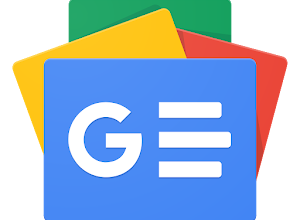Alphabet Sees Google Cloud Has Momentum, but the Stock Is Down. Should Investors Buy the Dip?

Alphabet (GOOGL -0.17%) (GOOG -0.28%) reported strong second-quarter results, powered by its cloud computing and search offerings. The stock has had a solid year and it was trading up over 30% year to date before the report’s release, but it’s falling following Alphabet’s earnings announcement.
With shares of the search giant slipping since Tuesday, is this an opportunity for investors to buy the dip? Let’s take a closer look at its most recent results, together with its future prospects and valuation, to find out.
Google Cloud leads the way
For its second quarter, Alphabet saw its revenue jump 14% year over year to $84.7 billion. That was just ahead of the $84.2 billion in revenue that analysts expected.
The growth was led by Google Cloud, which saw its revenue surge 29% year over year to $10.4 billion. Operating income in the segment climbed to $1.2 billion from $395 million a year ago, as the company continues to leverage this high-fixed-cost business. The company said the strong performance stemmed from artificial intelligence (AI) infrastructure and generative AI solutions, which are now being used by more than 2 million developers.
Google search was also strong, with revenue rising nearly 14% to $48.5 billion. The company noted that the growth was broad-based, led by retail customers and financial service clients. It also noted that people, especially younger adults, are engaging more with its AI search overviews and that they are clicking on ads placed above or below the overviews. The company plans to begin testing search and shopping ads for AI overviews in the U.S.
YouTube ad revenue, meanwhile, rose 13% to $8.7 billion, led by brands and direct response advertising. The segment’s results did fall short of expectations. However, the company said it was happy with the progress it was making on monetizing its short-form videos.
Alphabet also gave an update on its self-driving car unit Waymo, which it said is now delivering 50,000 weekly paid public rides, mostly in San Francisco and Phoenix. The company will also invest another $5 billion in the unit. Auto-taxis has the potential to be a big business, and Waymo is one of the early leaders in the space.
The company generated $13.5 billion of free cash flow in the quarter and $60.8 billion over the trailing 12 months. Alphabet ended the quarter with $110.9 billion in cash and equivalents and $13.3 billion in debt.
Looking ahead, the company said that its third-quarter operating margins will be impacted by increased depreciation and expenses from higher levels of investment in its infrastructure. It also said it planned to add headcount in the quarter as it would look to hire new graduates. However, it still expects to see full-year operating margin expansion. It also expects capital expenditures (capex) to be at or above $12 billion a quarter for the rest of the year.
Image source: Getty Images.
Is it time to buy the dip?
Overall, Alphabet turned in a strong quarter. Its cloud computing segment continues to shine; it’s both growing rapidly and showing great operating leverage. Meanwhile, the company continues to dominate with search and is starting to see benefits from AI in this area as well. While YouTube ad revenue expectations came up a bit short, the video platform continues to be a solid grower.
What investors undoubtedly did not like was the plan for increased spending. However, Alphabet is not unique in looking to increase spending to capture the AI opportunity in front of it, as companies like Amazon and Meta Platforms are doing the same. Alphabet CEO Sundar Pichai, meanwhile, said the biggest risk to the company was underinvesting, not overinvesting.
Given the company’s stockpile of cash and prolific cash flow, this seems like a shortsighted concern for investors.
From a valuation standpoint, meanwhile, Alphabet is one of the cheapest megacap tech stocks out there. Based on 2025 analyst estimates, the stock trades at a forward price-to-earnings (P/E) ratio of just about 20 times.
GOOGL PE Ratio (Forward 1y) data by YCharts
Given the early benefits the company is seeing in AI, combined with its dominant position in search and attractive valuation, I would be a buyer of Alphabet’s stock on this dip. The company has shown to be an AI beneficiary, and any fears that AI would disrupt its search business have thus far proven to be unfounded.
At the same time, the stock should not be punished for the company investing in a potentially large opportunity, especially given its huge cash position.
Suzanne Frey, an executive at Alphabet, is a member of The Motley Fool’s board of directors. Randi Zuckerberg, a former director of market development and spokeswoman for Facebook and sister to Meta Platforms CEO Mark Zuckerberg, is a member of The Motley Fool’s board of directors. John Mackey, former CEO of Whole Foods Market, an Amazon subsidiary, is a member of The Motley Fool’s board of directors. Geoffrey Seiler has positions in Alphabet. The Motley Fool has positions in and recommends Alphabet, Amazon, and Meta Platforms. The Motley Fool has a disclosure policy.
Read More



